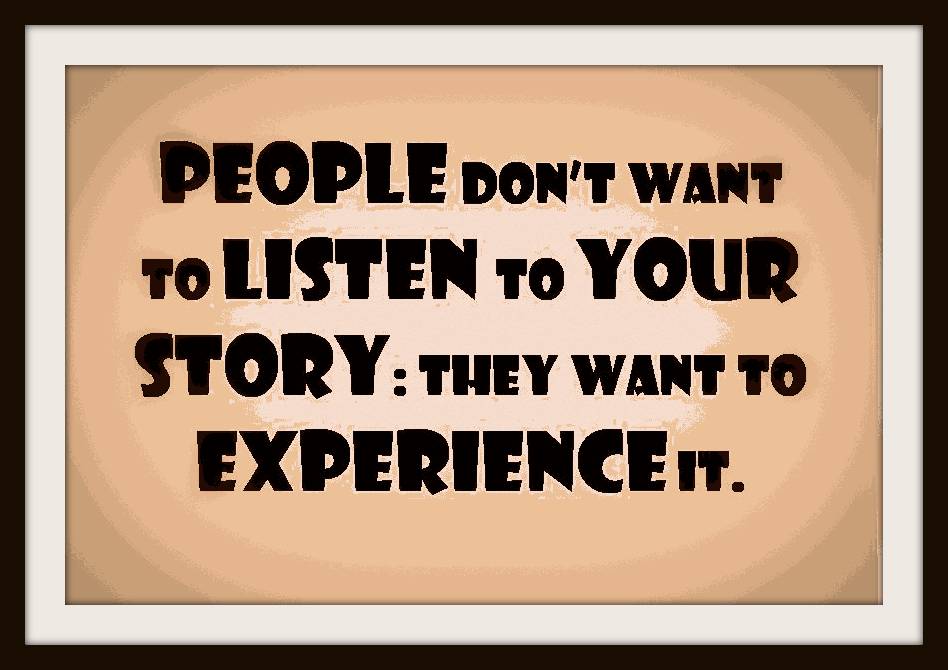We have covered the details on ingredients of a good story and how to prepare for storytelling. To follow such steps, we need to know first, where to find the right story? That is the Part- I of this post and afterwards we will discuss about the Do’s and Don’ts of storytelling.
Stories are everywhere but it’s a difficult work to find a powerful story which can connect the audience to the speaker.
Where to find stories from?
From your own life/experiences: This is the best place to find stories from. Your stories are unique as these tell about experiences of your life. Make a list of things happened to you or your loved ones. When you tell a story from your life, you tell it with more energy and passion. You act as a source of energy for your audience and you can pull their attention towards you.
Mythological stories: Myths are an integral part of human existence and such stories are proof of people’s beliefs of divine powers. The epics ‘Ramayana’, ‘Mahabharata’ and ‘Bhagwad Gita’ contain thousands of stories about ancient Indian society, philosophy, beliefs, culture and ways of life. Though these epics were written thousands of years back but still there is lot of resemblance. For example, the exact distance between Earth & Sun which is determined by NASA now is been exactly defined in the ‘Hanuman Chalisa’ years back. It is incredible to find such meaningful information and statistics which we never realized existed.
Historical Stories:History is our guide to future. It not only provides the best relevant examples but also helps with the proofing of a subject. Take up the history, research the subjects and dig deep into them. You must have heard of the Panchtantra stories and the age old Fairy tales, they all still hold so much of importance & value in terms of learning. We all remember Cinderella, Snow White, Rabbit & the Tortoise, Thirsty Crow etc.

Now here is a quick review to the Do’s and Don’t of Storytelling.
Do’s of Storytelling
1. Keep your stories simple and to the point: Always keep your story simple and to the point as complex stories make it difficult to explain the point you want to make and lengthy stories has potential to lose interest by the audience.
2. Relevance: Tell stories only those stories which are relevant to the subject. For experienced and intelligent people it
3. Use Humor: Humor will help keep audience’s interest in the story. Follow a simple rule: The longer, the humorous it must be.
4. Personal Stories: Tell your personal stories to the audience as these are your first hand experience of the challenges you faced and how you overcame those challenges. Personal stories will make you a unique speaker as none in the audience will have listened to them and no one can steal your story. Make a list of the things happened to you the best, the worst, the biggest mistake, the funniest, he greatest, the most frustrating, the most embarrassing.
5. Personal Humor: Tell about your ignorance at a particular instance and how did you behave in that situation. Audience will see themselves mirrored in you hence connecting to the point you want to convey.
6. Learn your Story: Tell a story at least 10 times before sharing it with your audience. Learn to tell what exactly you want to say and even if you miss that point you can improvise and make out your point. If you leave out an important point in the story it may spoil the outcome of the story.
7. Trigger the Emotions: There are many emotions, Happiness/ Sadness/ Anger/ Nostalgia/ Compassion/ Sympathy/ Empathy, a speaker can target with a story that have emotional power. A powerful story will help getting positive emotional response as the audience feel connected to it.
Don’ts of Storytelling
1. Do not use too many stories in a presentation:Often only one good story is enough. You can tell two or maximum three stories to reinforce your point. Using more than three stories in your presentation will make it difficult for the participants to remember the points you made in each story.
2. Do not Keep your stories too simple: For experienced and intelligent people it will be a boring and they will lose interest in the message. Still if you have to tell a simple and short story keep it short after making your point proceed to the next part of your presentation.
3. Do not be Funny: There is a thin line between using humor in your story and being funny and lose the interest and respect of the audience. Do not portray yourself how stupidly you behaved at a particular instance as there is strong probability that they will forget the point you wanted to convey but will remember you as dumb.
4. Do not memorize Story: Do not memorize the story as people have tendency to tell the story word by word. And if the fumble they’ll miss the interest of the audience and hence the outcome of the story.
